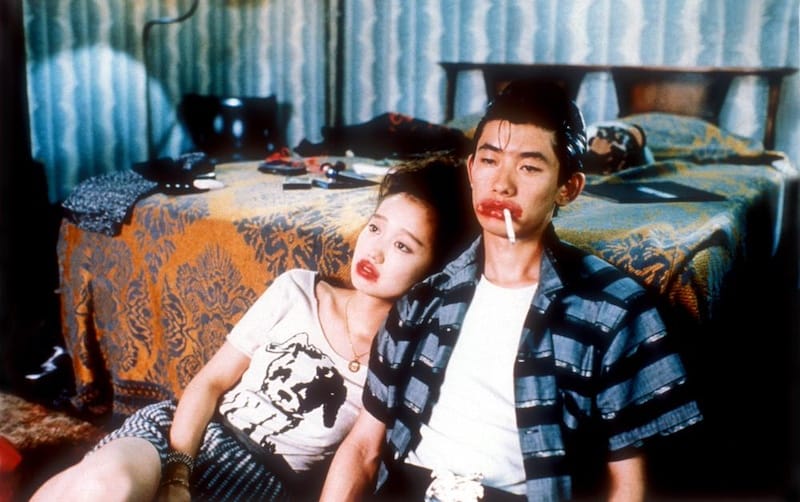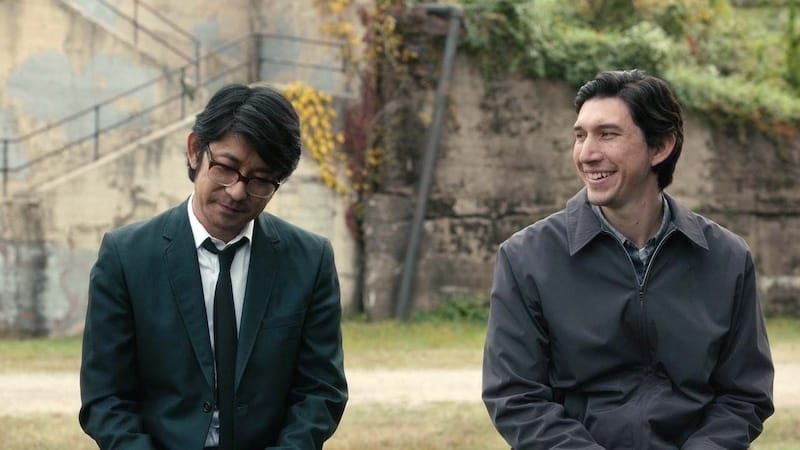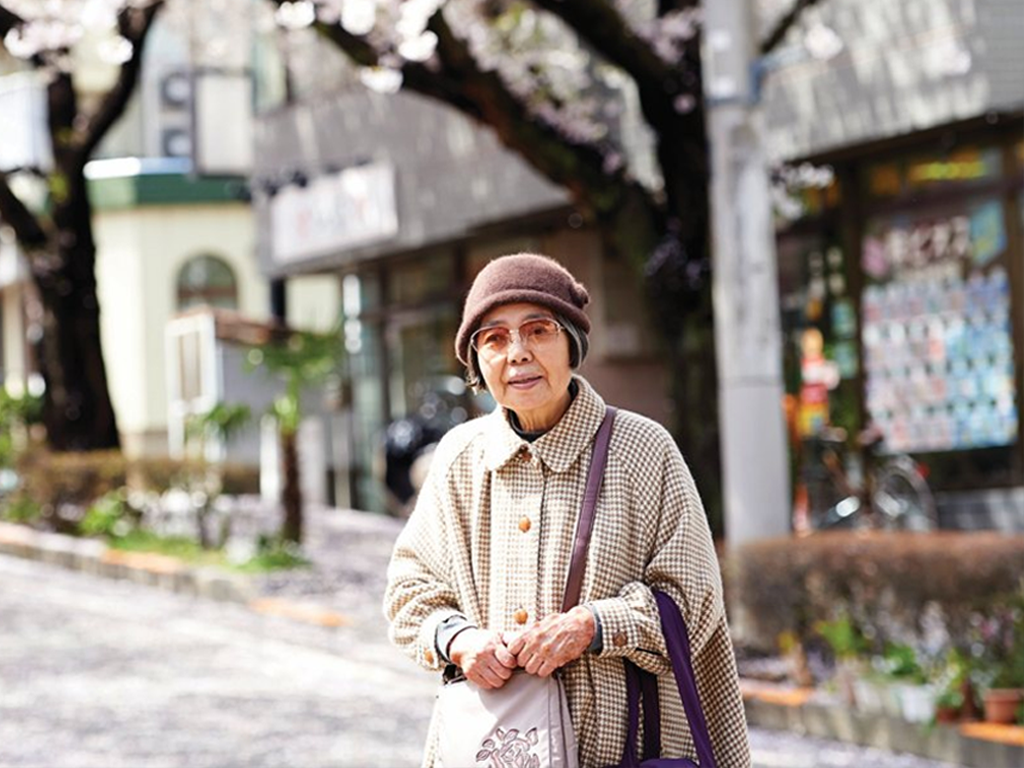Vibe:
Soft, gentle, and kind... until it knocks you down on the ground and guts you like a fish. If you let it, this film will emotionally crush you and leave you silently crying in bed, trying not to wake your partner.
If you can avoid it, don't read too much about "Sweet Bean" before watching. If someone described the plot to me, it wouldn't appeal at all and there's a chance I would write it off as saccharine schlock. I'm happy I knew next to nothing about this film before watching.
Best time to watch:
With your grandma, especially if her long, winding stories about the "olden days" annoy the piss out of you and you're looking for a way to connect and appreciate her more.
With a friend who constantly complains that "Foreign cinema is a pain." I feel like everyone has one person in their life who refuses to watch movies with subtitles because they don't feel like reading. My mom, who probably watches more movies than I do, often refuses to see titles I know she'll like just because she doesn't feel like watching with her glasses. Excuses, excuses. "Sweet Bean" is a good way to ease a person like this in because the subtitles are pretty minimal and the plot isn't so intricate that if you miss a few lines, you'll be irreparably confused.
When you're feeling especially bummed because of "President" Trump and you need to remind yourself that good people exist and the world isn't complete shit.
After you finish binging season 2 of "Chef's Table" and still want more. The dorayaki creation scenes are poetic, meditative food porn at its finest.
Worst time to watch:
When you're on your period. Unless you're down to sob uncontrollably because "Sweet Bean" is so beautiful and sad at the same time and you just can't handle it.
When you're feeling annoyed. On days when I'm as grumpy as Senatro (Masatoshi Nagase), I want nothing to do with people like Tokue (Kirin Kiki). I walk down the streets and actively loathe other people for simply existing, so I can't imagine how I would react if someone told me, “We are born into this world to see it and listen to it. Since that’s the case, we don’t have to be someone. We have, each of us has, a meaning to our life.” Actually, yes... I can imagine how I would react. I would tell them to shut the fuck up :)
Where to watch:
Netflix, iTunes, etc. This is the only one of Naomi Kawase's films that I easily found online. Although she's an internationally renowned filmmaker who does well at festivals, most of her films don't receive US distribution deals. If anyone knows where I can watch her other films, please let me know.
Quick summary:
Sentaro is a grumpy manager at a dorayaki shop, living life in a mindless, often drunken haze. When he puts up a sign advertising for a part-time job, he meets Tokue, an earnest octogenarian who desperately wants to help him improve his sweet bean paste. Over the course of 113 minutes, Sentaro, Tokue, and Wakana (Kyara Uchida), a young shop patron, develop a strong kinship and help each other learn and grow. It sounds smarmy as hell and emotionally manipulative, but Naomi Kawase is skilled enough to avoid those trappings.
Thoughts:
I knew nothing about this film before pressing play, but I was immediately stoked to see Masatoshi Nagase again, aka Jun from "Mystery Train" (Jarmusch, 1989) and the Japanese poet from "Paterson" (Jarmush, 2016).


Jim Jarmusch is an American filmmaker who is very much influenced by Japanese cinema (especially Yasujiro Ozu). Like many Japanese filmmakers, his movies are often minimalist and focus more on emotions than traditional plot development. And American critics love him (me included)! So why don't they respond to Naomi Kawase in the same way?
Even critics who reacted positively to "Sweet Bean" noted that it was a bit too saccharine, schmaltzy, cloying, etc. BFI says,
But the director’s characteristically mawkish dialogue in the accompanying voiceover, waxing in quasi-mystical terms about the adzuki bean’s rite of passage from field to kitchen or “the soul of a dorayaki”, may leave some viewers wishing that the centre of this latest confection were a little less cloying.
Film Comment mentions "Sweet Bean" in a review of "Paterson" and calls it "oversugared." Some asshole at Indiewire gave it a C- grade, musing, "Why Does the Cannes Film Festival Keep Programming Naomi Kawase’s Movies?" At the end of the review, he decides,
Surely it can’t be Kawase’s tarnished reputation as an artist (it’s been a good while since her more favorably-received documentary work had its day). Or is Cannes’ pool of female filmmakers so shallow that they’d sooner go with a surefire miss than something that will steal the spotlight from the boys’ club. No matter: this is one small peak [sic] into the world’s most important, and problematic, film festival.
Hahaha tell me more about misogyny at Cannes, Adam Cook... because I give a single fuck about your ill-informed opinion and failed attempt at feminism. Actually, this is one small PEEK into the garbage that Indiewire often posts and the reason why I rarely look at it.
But really, I sort of understand the criticism Kawase receives from American critics (sans the Indiewire nonsense). I think her undying optimism is what makes her films harder to relate to than those by Jarmusch, Ozu, and Hirokazu Koreeda.
I'm an unapologetic cynic with an overtly negative life philosophy. With each passing year, I understand more clearly why people reach old age and feel ready to die. When I was in 7th grade, I had a holographic sticker on my Trapper Keeper (obviously purchased from NRM) that said, "Life is a bitch." Even at twelve-years-old, I knew what I was about.
At twenty-seven, my outlook is a bit more nuanced, but the general sentiment holds true. I don't think life is a precious magical gift. I am not spiritual/religious. I don't think I'll ever meet a wizened old lady who is able to pull me out of my years-long struggle with depression. Other people are never going to solve my problems. Fuck, I'm never going to solve my problems. I will discuss them with a qualified therapist but likely take them to my grave.
Knowing this information, you might be surprised to hear that I very much enjoyed "Sweet Bean" and I'm interested in seeing more Naomi Kawase films... but I did and I am. I appreciate people who are able to see the positive aspects of life and turn tough situations into valuable, meaningful experiences. I don't mind the Tokue's of the world, especially when they're presented to me in such a beautiful way.
If Kawase was an amateur filmmaker who didn't know how to frame a shot or build an emotional arc, this film would not have resonated with me and the harsh criticism would feel justified. But her skill earns her the right to be sentimental. Even if you're a staunch nihilist like me, this film will win you over if you're able to give it a chance; if you write it off before it even begins, you'll miss everything it has to offer.





